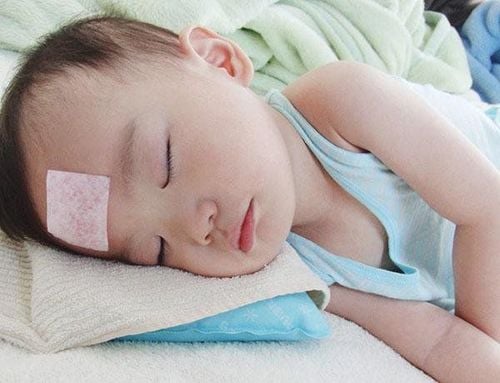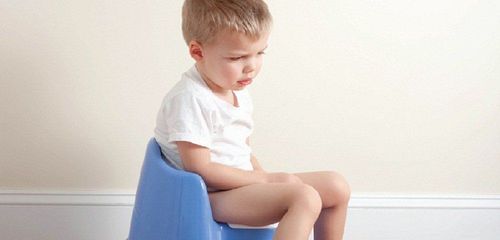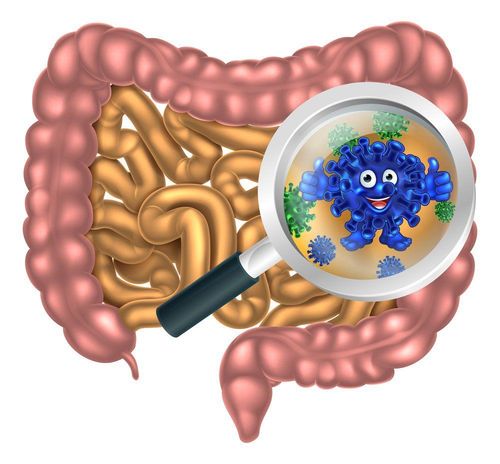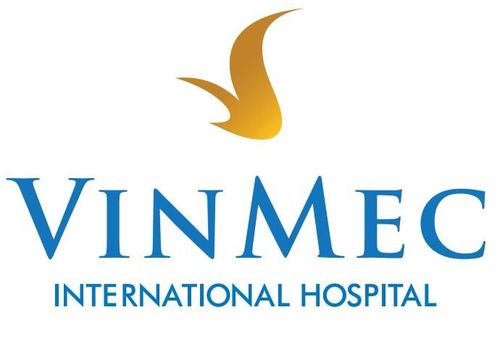This is an automatically translated article.
The article was written by Doctor Pham Lan Huong - Pediatrician, Pediatric Center - Vinmec Times City International General Hospital.1. Symptoms of dehydration
If your child has a fever, diarrhea, vomiting or sweats a lot on hot days or with a lot of physical activity, parents should watch out for the following signs of dehydration:
Dry or sticky lips Crying little or no tears Sunken eyes Baby's front fontanel more palpable Dry, cold skin Irritability, excessive fussiness Drowsiness or dizziness

2. How to treat a child with dehydration?
It is very important to detect children with signs of dehydration and treat them. The goal of dehydration treatment is to replenish lost fluid (fluid) and maintain normal body fluid levels.
Children with mild signs of dehydration due to activity may only feel thirsty, so drink as much water as the child needs. Filtered water is the best choice. In addition, the child should be rested in a cool, shaded place until the water loss has been rehydrated.
Rehydration When a child shows signs of mild to moderate dehydration due to acute diarrhea, it is necessary to replenish lost fluids immediately. Oresol solution is used to rehydrate the child for a period of 3-4 hours. Oresol solution is a mixture of sugar and salt in a balanced ratio for dehydrated children. This medication is available in many pharmacies without a prescription.
Rehydration begins with 1-2 tablespoons of oresol (about 5-10 ml) over a few minutes. Parents can use a spoon or a syringe. The total amount of supplemental fluid for children in the first hour can be up to 237ml. If the child is making good progress, parents should gradually increase the amount of water little by little.
Children who vomit are often rehydrated this way, because small sips of water are absorbed between vomiting episodes.

For breastfed infants, breastfeeding should be continued, even during fluid resuscitation. Oresol supplement for babies between feedings. Breastfeeding should be discontinued for formula-fed infants, and re-introduced as soon as possible when the infant shows signs of dehydration.
Do not give dehydrated children water, soda, ginger water, tea, fruit juice, gelatin snacks or chicken broth. Because these types of water do not contain the right ratio of sugar and salt, it can make diarrhea symptoms worse.
When the child is rehydrating, the normal diet can be used, such as breast milk, formula milk.
For children whose dehydration does not improve with Oresol solution, especially children with signs of frequent watery stools or vomiting, or irreversible dehydration due to other causes, the child needs to be treated. hospitalized for intravenous fluid resuscitation.

3. Prevention of signs of dehydration
Need to make sure children drink enough water when sick or physically active to prevent dehydration. Support for children at risk of dehydration is supplemented with enough water. For example, a child with a sore throat may become dehydrated from eating too much pain or taking pain relievers such as acetaminophen or ibuprofen.
Not all cases of fever require treatment, but if the child is uncomfortable or is not getting enough fluids, fever-reducing medications can be used to control the fever.
Pediatrics department at Vinmec International General Hospital is the address for receiving and examining diseases that infants and young children are susceptible to: viral fever, bacterial fever, otitis media, pneumonia in children, .... With modern equipment, sterile space, minimizing the impact as well as the risk of disease spread. Along with that is the dedication from the doctors with professional experience with pediatric patients, making the examination no longer a concern of the parents.
Please dial HOTLINE for more information or register for an appointment HERE. Download MyVinmec app to make appointments faster and to manage your bookings easily.














